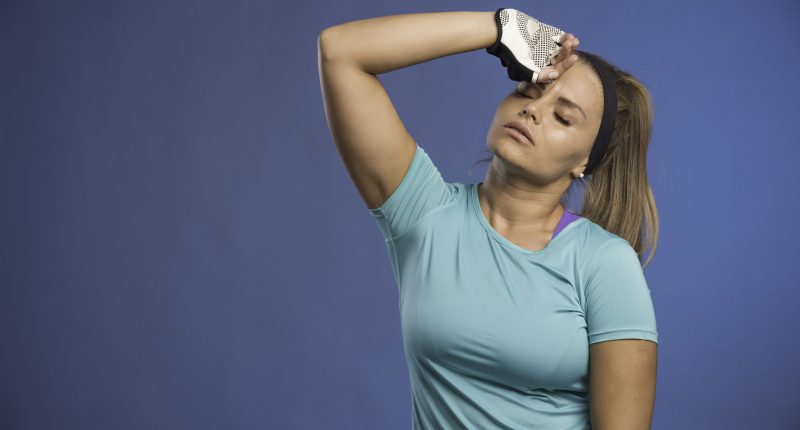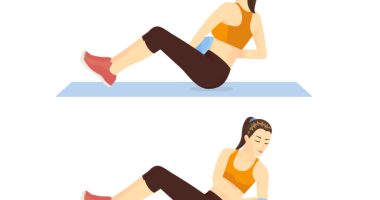As summer temperatures rise, the challenge of managing hot flashes can feel even more overwhelming, especially for women navigating perimenopause or menopause. Unlike a passing heatwave, hot flashes are internal surges of heat that can strike suddenly, leaving you flushed, sweating, and desperate for relief. But there’s good news—natural strategies exist to cool you down and reduce their frequency without relying solely on hormone therapy.
This guide provides practical, scientifically supported ways to stop hot flashes in their tracks and reclaim your comfort—even during the hottest months of the year.

What Are Hot Flashes and Why Do They Get Worse in Summer?
Hot flashes are brief episodes of intense warmth, typically felt on the face, neck, and chest, often followed by sweating, palpitations, and sometimes chills. They occur due to hormonal fluctuations—particularly the decline of estrogen—which affects the hypothalamus, the brain’s internal thermostat. This malfunction sends false signals of overheating, triggering blood vessel dilation and sweat production.
During summer, external heat further aggravates these symptoms. The body already struggles to cool down, so when a hot flash hits, it amplifies the discomfort. This is why preventing hot flashes naturally becomes even more important during warmer weather.
How to Prevent Hot Flashes This Summer—Simple Lifestyle Shifts That Work
Some everyday habits can reduce the likelihood of triggering a flash in the first place. These changes don’t require a doctor’s visit or a prescription—they simply require consistency.
1. Stay Hydrated All Day Long
Dehydration makes it harder for your body to regulate temperature. When you’re low on fluids, your blood thickens, circulation slows, and your body’s cooling mechanisms become less efficient. Sip cool water throughout the day. Herbal teas like peppermint or hibiscus (served cold) can also help.
Anecdote: One woman shared on a menopause support forum that drinking a large glass of water at the first sign of a flush helped reduce its intensity by nearly half.
2. Avoid Common Triggers
Certain foods and lifestyle habits are well-known to set off hot flashes, especially when combined with external heat. These include:
- Spicy dishes
- Caffeine
- Alcohol
- Smoking
- Sugary snacks
- Hot drinks (even decaf)
Keeping a journal of your daily habits and symptoms can help you identify what’s fueling your personal flare-ups.
How to Stop Hot Flashes in Their Tracks—Proven Natural Remedies
Once a hot flash begins, acting quickly can reduce its duration and severity. Below are remedies backed by science and real-world success.
1. Deep Breathing and Meditation
Slow, controlled breathing has been shown in multiple studies to reduce the frequency of hot flashes. Practicing mindful breathing (six to eight breaths per minute) for 15 minutes daily helps reset your internal thermostat. Apps like Headspace or Calm provide guided breathing and meditation sessions designed for stress and hormonal balance.
2. Cool Compress and Portable Fans
Keeping a cooling towel or small ice pack on hand—especially in a handbag or desk drawer—can provide immediate relief when symptoms start. A portable neck fan, especially during travel or time outdoors, can literally stop hot flashes midstream.
Example: A 2016 Annual Report from Scribd found that 67% of respondents who used cooling accessories reported “moderate to significant” relief from hot flashes during peak summer months.
Foods That Help Cool You Down From the Inside Out
What you eat can directly impact how your body manages heat. Incorporating certain cooling and phytoestrogen-rich foods into your daily meals can lower the severity of flashes.
Include These in Your Diet:
- Flaxseeds – High in lignans that mimic estrogen
- Soy-based products – Contain isoflavones proven to reduce hot flashes
- Leafy greens – Help reduce inflammation and aid detoxification
- Cold-water fish – Rich in omega-3s that support hormonal balance
- Cucumbers, watermelon, and berries – Naturally hydrating and anti-inflammatory
Stat: A 2015 clinical trial published in Menopause found that postmenopausal women who ate soy products daily experienced a 45% decrease in hot flashes over 12 weeks.
Natural Supplements That Support Hormonal Stability
Supplements can fill nutritional gaps and promote hormone regulation, but they’re not one-size-fits-all. Always consult a healthcare provider before starting a new regimen.
Consider:
- Black cohosh – Traditionally used for menopausal symptoms; studies show mixed but promising results.
- Vitamin E – Antioxidant that may reduce hot flash severity
- Maca root – Adaptogen believed to stabilize hormone levels
- Evening primrose oil – May relieve symptoms, especially when paired with other lifestyle changes
Note: A 2023 review in Phytotherapy Research emphasized the safety of these supplements when taken in appropriate dosages, though effects may vary.
Dress Smart: Clothing That Cools
What you wear matters. Breathable fabrics like cotton, bamboo, and moisture-wicking athletic wear can help reduce sweating and allow your skin to regulate heat more effectively. Dressing in layers also allows you to adjust quickly when a hot flash hits.
Anecdote: A fitness instructor experiencing perimenopausal hot flashes reported switching to bamboo-fiber tank tops during workouts, dramatically cutting down post-exercise flashes.
Create a Sleep-Friendly Environment
Night sweats, a nocturnal cousin of hot flashes, can ruin rest and lead to next-day fatigue and irritability. Create a bedroom microclimate that helps your body cool naturally.
Try:
- Cotton sheets and cooling pillows
- A fan positioned near your bed
- Sleepwear designed with moisture-wicking technology
- Limiting heavy meals and alcohol before bedtime
Tip: Keep a chilled water bottle near your bed and a cool mist spray for quick comfort.
Bonus: Stay Active Without Overheating
While exercise improves hormone function and overall wellbeing, it can also raise your core temperature. The key is timing and moderation.
Best Practices:
- Exercise early in the morning or late in the evening
- Choose cooler activities like swimming, yoga, or indoor cycling
- Take frequent water breaks and wear loose-fitting clothes
Regular movement not only reduces hot flash frequency but also supports mood and cardiovascular health.
When to Talk to Your Doctor
If natural approaches aren’t making a noticeable difference, don’t hesitate to consult a doctor. For some, hormone replacement therapy (HRT) or non-hormonal medications may be appropriate. Also, persistent hot flashes could indicate thyroid issues, so bloodwork may be warranted.
Final Thoughts
Managing hot flashes during the summer doesn’t have to feel like a losing battle. By making smart choices—from food and hydration to supplements and stress management—you can prevent hot flashes naturally and enjoy warm weather without the constant fear of overheating.
You don’t have to give up your comfort to manage hormonal changes. These proven, practical strategies work with your body’s rhythms to bring back a sense of control, even when the mercury rises.
Also Read | COPD Symptoms Women Over 50 Should Never Ignore










